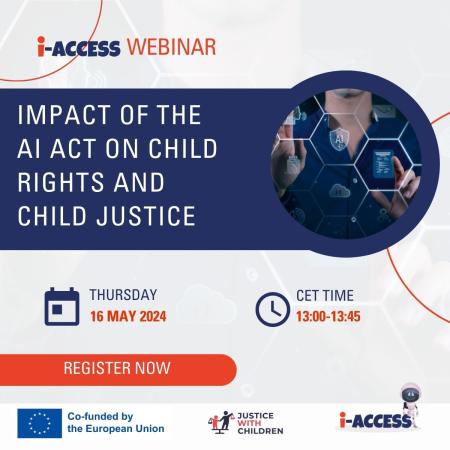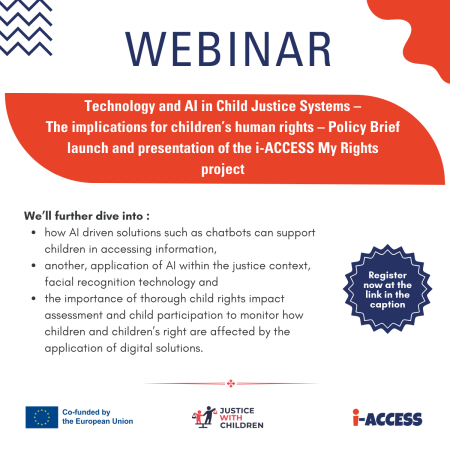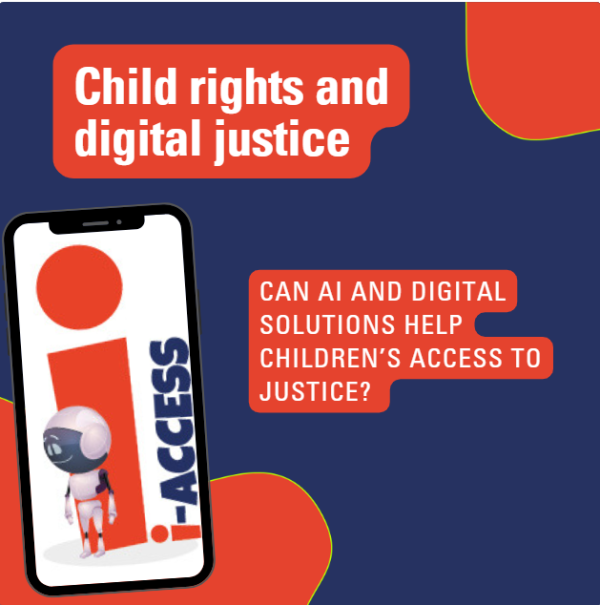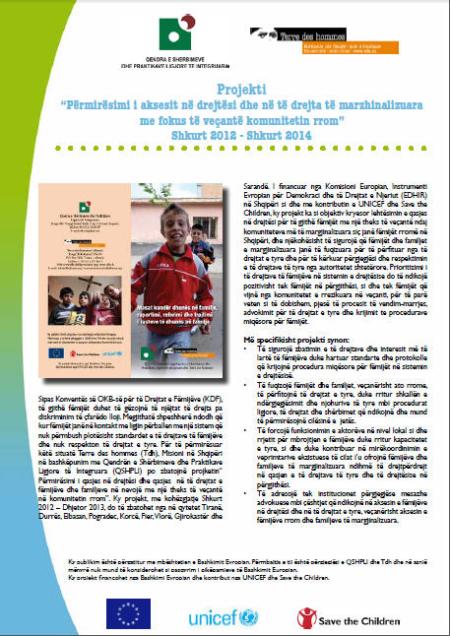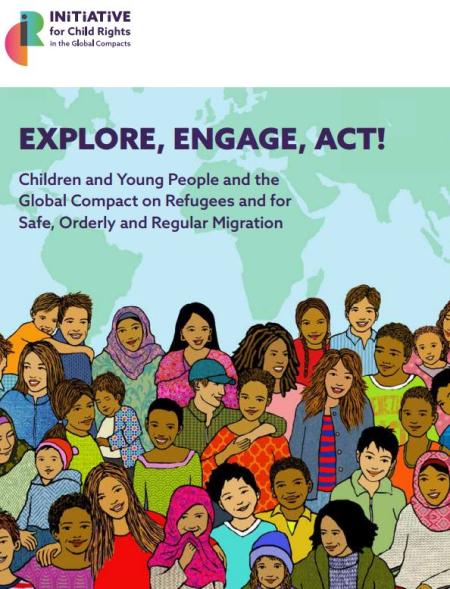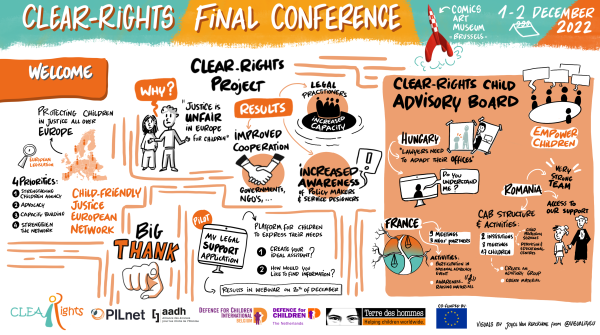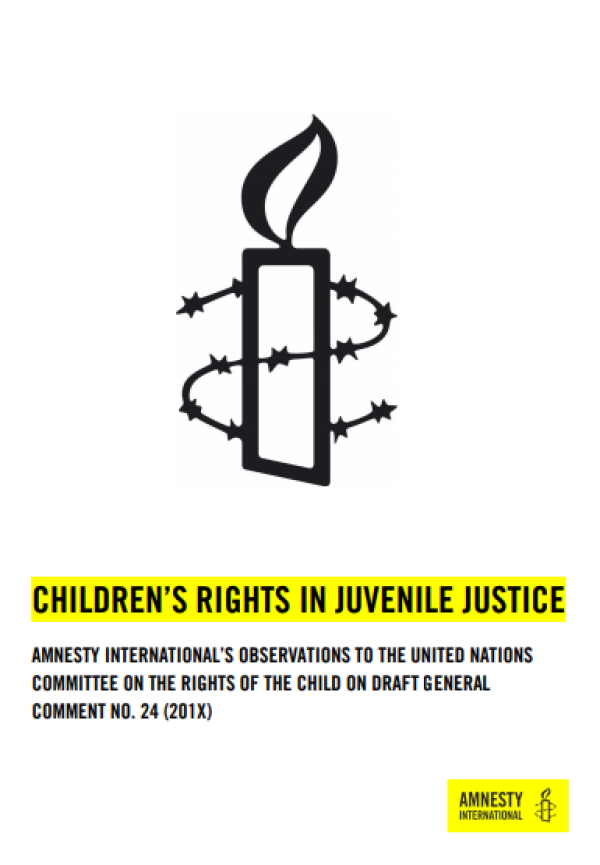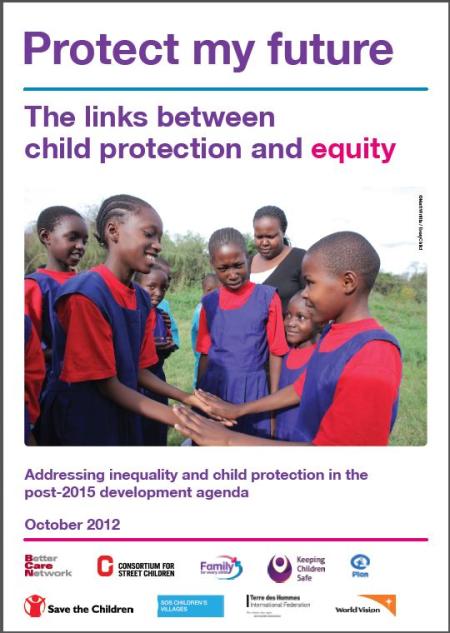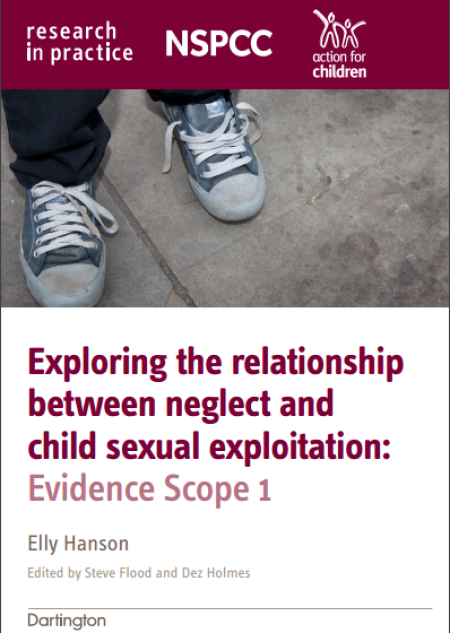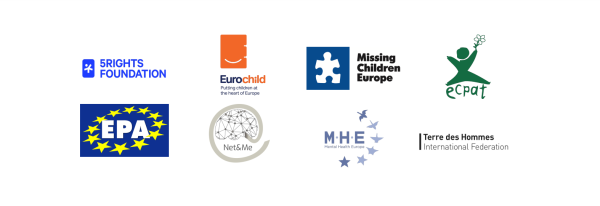
Artificial intelligence (AI) is increasingly used in child justice, with extensive implications for children’s rights. Join the webinar "Impact of the AI Act on children’s rights and child justice", co-organized by i-ACCESS and Justice with Children, to explore the connections between AI, children’s rights and child justice! We will discuss the challenges, opportunities, and regulatory frameworks shaping the current AI landscape in Europe.
AI can be a great asset for the advancement of children’s rights. For example, AI-driven chatbots can help children access information, and AI solutions can streamline processes in child justice cases.
The potential benefits of AI are almost endless, but so can the potential risks if we do not include children’s rights and children’s voices in policies and frameworks. We need to act as quickly as we push the boundaries of innovation.
In this sense, how does the AI Act, the newly adopted regulation of the European Union on artificial intelligence, impact children’s rights and child protection?
We will explore the intersection of children’s rights, emerging technologies, and child justice, and the implications of the AI Act, in the next webinar of the i-Access MyRights series, held on Thursday 16 May at 13:00 CET.
Attendance is free, but registration is required and available at this link.
Join us for a chance to learn from AI and child justice experts!
Dr Nessa Lynch, University College Cork, will delve into promises and perils that artificial intelligence presents for children's rights, in particular for vulnerable groups like children in conflict with the law and migrant children.
Victoria Hendrickx, KU Leuven, will explain the transparency obligations and practical implications of the EU AI Act, and how the AI act impacts the chatbot, developed by the i-Access project to inform children about child justice and their rights.
Moderated by child justice expert Cédric Foussard, this webinar promises a dynamic discussion with opportunities to engage with professionals from diverse backgrounds, and we invite you to be part of it!
AI is a cross-sectoral topic, and we need tech, child justice and children’s rights experts to collaborate and combine their expertise to build AI tools grounded in ethics and child protection principles.
Register now to navigate the AI frontier to safeguard children's rights in the digital age!
About the webinar
The event is part of the webinar series hosted by the project “i-ACCESS MyRights” in collaboration with the Justice with Children Global Initiative. The series delves into digital trends within the child justice system, and their impact on the rights of children in contact with the law.
In the first webinar, we explored AI benefits for children’s access to information, AI applications in child justice, facial recognition technologies, and the crucial role of child rights impact assessment and child participation, as we advocate in our policy brief.
About the speakers
 Dr Nessa Lynch is the Matheson Lecturer in Law, Innovation and Technology at University College Cork, Ireland and a Research Fellow at Victoria University of Wellington, New Zealand. She is an expert in both law and emerging technology and youth justice, particularly biometric surveillance.
Dr Nessa Lynch is the Matheson Lecturer in Law, Innovation and Technology at University College Cork, Ireland and a Research Fellow at Victoria University of Wellington, New Zealand. She is an expert in both law and emerging technology and youth justice, particularly biometric surveillance.
 Victoria Hendrickx is a PhD researcher at KU Leuven Centre of IT and IP-imec, where she focuses on the impact of AI on the judiciary. Within the i-ACCESS project, she researches the legal and ethical considerations regarding the development of AI-driven chatbots.
Victoria Hendrickx is a PhD researcher at KU Leuven Centre of IT and IP-imec, where she focuses on the impact of AI on the judiciary. Within the i-ACCESS project, she researches the legal and ethical considerations regarding the development of AI-driven chatbots.
 Cédric Foussard is a child justice expert, and he’s the global coordinator of the Justice with Children Initiative.
Cédric Foussard is a child justice expert, and he’s the global coordinator of the Justice with Children Initiative.
 Dóra Kiss is the regional coordinator of the i-ACCESS project, led by Terre des hommes.
Dóra Kiss is the regional coordinator of the i-ACCESS project, led by Terre des hommes.
About the project
The i-ACCESS MyRights project aims to improve access to information and legal assistance in the field of digital justice for child victims in the European Union, by promoting a child-centric AI solution. The aim is to create an accessible tool based on NLP (Natural Language Processing) technology, where child victims will have access to information on their role and rights in criminal proceedings, presented in a child-friendly way.
The project is co-funded by the European Union and it is implemented by Terre des hommes Regional Hub in Hungary, Terre des hommes Hellas, Terre des hommes Romania, Social Activities and Practice Institute in Bulgaria, Noldus in the Netherlands, Katholieke Universiteit Leuven in Belgium and Lawren.io in Belgium.



